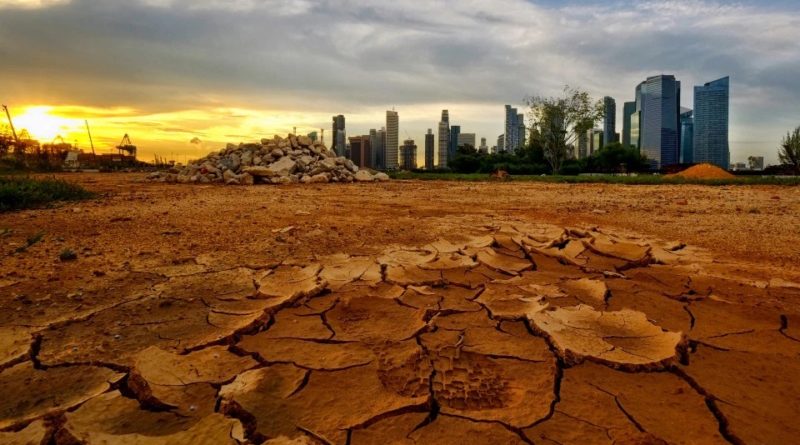Civilization Headed for Collapse by 2050
The future predicted by the report is one of potential global catastrophe.
“Climate change now represents a near- to mid-term existential threat to human civilisation,” wrote researchers in the “Existential climate-related security risk” paper.
A new report warns that climate change could displace more than a billion people, leave two billion without regular water access and lead to a breakdown in international order by 2050 if nations do not increase their commitments under the Paris agreement.
The paper warns that if global average temperatures have risen by 2 degrees Celcius by 2050, we’ll face major catastrophe around the world.

How Will Human Civilization End?
The paper goes on to predict the end starting with governments brushing off scientists’ recommendations to find alternative sources of energy, which inevitably results in the global temperature rising to 5.4 degrees Fahrenheit (3 degrees Celsius).
The impacts of three degrees of warming by 2050 would include:
- The collapse of ecosystems like coral reefs, the Amazon and the Arctic
- Unlivable temperatures for more than 100 days a year in West Africa, tropical South America, the Middle East and South-East Asia
- A one-fifth decline in agricultural yields
- The flooding of coastal cities, small islands and low-lying regions including Chennai, Mumbai, Jakarta, Guangzhou, Tianjin, Hong Kong, Ho Chi Minh City, Shanghai, Lagos, Bangkok, Manila and ten percent of Bangladesh
- Likely armed conflict over resources, with the possibility of nuclear war
According to the authors’ hypothesis, lethal heat conditions will occur in 35 percent of global land area and 55 percent of the global population for more than 20 days a year. Nearly a third of the global land surface will turn into ultra-dry desert.
Devastating droughts, floods, and wildfires will obliterate ecosystems all over the world, from ice sheets to coral reefs to rainforests. These extreme conditions will hit the world’s tropical places hardest, eradicating agriculture and displacing about a billion people in the process.
Refugees and a dangerous drop in available resources will strain even the developed countries. As the resources decrease, conflict becomes more and more probable, which could escalate into chaos until the end of human civilization comes about.
Many ecosystems — including those in the Arctic, the Amazon rainforest and the coral reef systems — would collapse.
Across West Africa, tropical South America, the Middle East and Southeast Asia, there would be more than 100 days a year of deadly heat, leading to over 1 billion people being displaced.
Food production would drop off due to the “catastrophic decline” in insect populations, weather too hot for humans to survive in significant food-growing areas and chronic water shortages.
Rising sea levels would cause people to abandon parts of Mumbai, Jakarta, Guangzhou, Hong Kong, Ho Chi Minh City, Shanghai, Bangkok and Manila, among other cities. Around 15 million people in Bangladesh would be displaced.
The latest report is not the first time researchers have warned of major social problems. In March, a landmark United Nations paper found that humankind’s window for action was closing fast.




